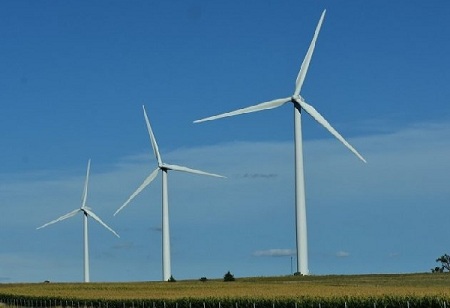Duty and tax exemptions should be made available for all offshore projects, according to Nair, in order to support offshore wind projects. According to Nair, emphasis also needs to be paid to the establishment of evacuation systems for new locations where projects would be set up. According to Nair, the industry has suggested to create green transmission corridors in states with a high potential for wind energy, with the appropriate financial support to the states and under the management of centralised transmission utilities like Power Grid Corp. Micro
small and medium enterprises should be incentivised once again to participate in wind projects by offering them interest subventions since the tariffs are too low for them to sustain the projects, Giri said. "They will need a tariff that is at a 20–30% premium to the current tariff," Giri said. "Before 2017, MSMEs had installed around 25 gigawatts out of the 41 gigawatts of total wind projects that were installed till then. However, after 2017, they have not received any opportunity to set up wind projects. "The government's push for renewable energy needs to be supplemented with incentives for project execution, site development, and domestic manufacturing, according to Ashwani Kumar, chief executive officer at Suzlon Group.
"A generation-linked incentive for domestic manufacturers would go a long way toward achieving our ambitious renewable energy targets," Kumar said. "I look forward to a budget that further accelerates India’s journey to 500 gigawatts of renewable energy by 2030."
Proposals Outside of Budget: According to Giri, increasing incentives under the Remission of Duties and Taxes on Exported Products Scheme from the current 0.8% to 2% will help India make up for its disadvantages against China in terms of freight costs as well as its higher financing costs. He suggested including power in the GST's authority.
